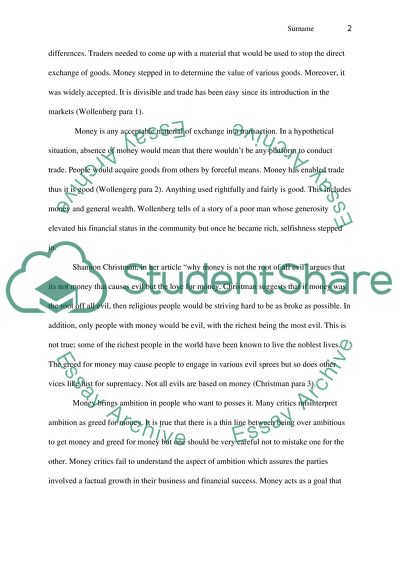Cite this document
(Money is the Root of Good Essay Example | Topics and Well Written Essays - 2118 words, n.d.)
Money is the Root of Good Essay Example | Topics and Well Written Essays - 2118 words. Retrieved from https://studentshare.org/creative-writing/1594241-money-is-the-root-of-good
Money is the Root of Good Essay Example | Topics and Well Written Essays - 2118 words. Retrieved from https://studentshare.org/creative-writing/1594241-money-is-the-root-of-good
(Money Is the Root of Good Essay Example | Topics and Well Written Essays - 2118 Words)
Money Is the Root of Good Essay Example | Topics and Well Written Essays - 2118 Words. https://studentshare.org/creative-writing/1594241-money-is-the-root-of-good.
Money Is the Root of Good Essay Example | Topics and Well Written Essays - 2118 Words. https://studentshare.org/creative-writing/1594241-money-is-the-root-of-good.
“Money Is the Root of Good Essay Example | Topics and Well Written Essays - 2118 Words”, n.d. https://studentshare.org/creative-writing/1594241-money-is-the-root-of-good.


